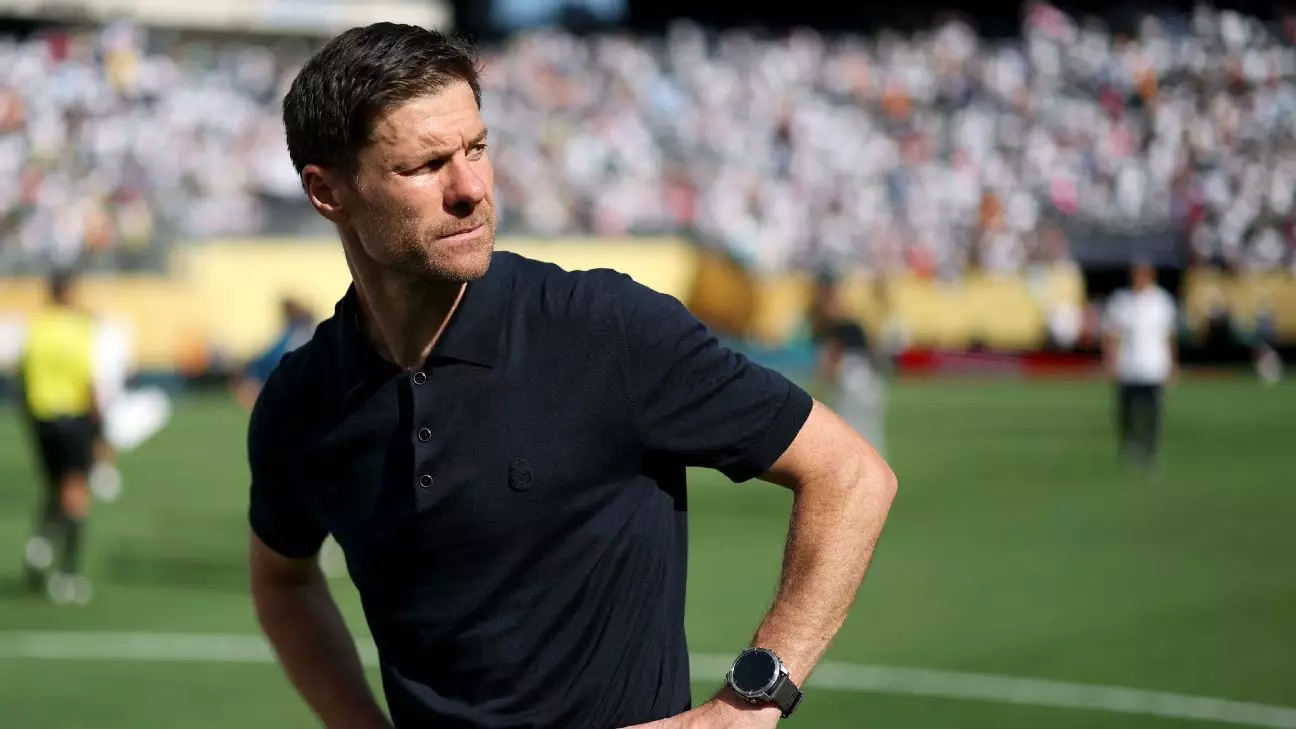The football world is on the cusp of a new era at Real Madrid, with the legendary Xabi Alonso stepping into the coveted managerial role. His appointment signifies more than a mere change of coach; it represents a profound opportunity for the club to reinvent itself. Historically, Madrid has been a haven for star power, relying heavily on marquee signings and individual brilliance. However, Alonso’s emergence as a coach suggests a shift towards a more disciplined, cohesive team philosophy. This transition is critical if Madrid aims to reclaim its dominance amid increasing competition from clubs like Manchester City, Bayern Munich, and former European giants. Alonso’s track record at Bayer Leverkusen, where he exhibited a fearless approach to squad management and tactical adaptability, indicates that Madrid’s new blueprint may involve a ruthless trimming of the squad to foster a culture of excellence and accountability.
The club’s recent absence of silverware has cast a shadow over its storied legacy. Under Carlo Ancelotti, Madrid struggled to find consistency, culminating in a season devoid of trophies—a rare occurrence for the club in recent history. Alonso’s task is daunting but promising: to instill a winning mentality that combines tactical ingenuity with ruthless squad management. His willingness to make big decisions, including dropping star players if they do not fit into his vision, could be the catalyst for a seismic shift in Madrid’s fortunes. This approach might upset some players initially, but it could ultimately yield a more disciplined, unified, and formidable squad.
The Challenge of Integration: Balancing Star Power and Team Cohesion
A central challenge for Alonso will be integrating high-profile players like Kylian Mbappé and Vinícius Júnior into a cohesive unit. As Bale notes, Alonso’s experience at Leverkusen—where he managed a team with less star power—could serve him well, but working with globally recognized talents demands a different approach. The French superstar Mbappé, despite being the top scorer in La Liga, faced criticism for a season that, while prolific, lacked tangible success. His individual brilliance did not translate into trophies, which highlights a broader issue at Madrid: the need to convert individual talent into collective triumphs.
Alonso’s strategy must involve harnessing Mbappé’s goalscoring prowess while also ensuring the team functions fluidly. Bale’s insights hint that Alonso’s attention to detail, demanding tactical discipline, and willingness to bench players who don’t meet his standards will be pivotal. Madrid’s recent struggles expose the pitfalls of overly relying on individual brilliance without a disciplined tactical framework. Alonso’s potential success hinges on cultivating a system that maximizes the strengths of these star players without sacrificing team harmony. His past as a meticulous, demanding player suggests he has the temperament to push elite talents toward collective goals, but it will require delicate management, especially amid high expectations.
Leadership and Legacy: The Weight of Madrid’s Expectations
At Real Madrid, winning isn’t optional; it’s a matter of identity. Fans and club officials demand trophies, and every season without silverware is seen as a failure. Alonso’s challenge is to redefine the club’s narrative, emphasizing strategic stability over sporadic brilliance. The departure of Luka Modrić marks a symbolic passing of the torch—one that Alonso must accelerate by fostering a new core that can sustain success.
Bale’s admiration for Modrić encapsulates the intangible qualities of leadership, intelligence, and tactical understanding that define Madrid’s great teams. Alonso’s appreciation for Modrić’s evolution from a small, skillful midfielder to a world-class maestro demonstrates his own understanding of player development and resilience. If Alonso mirrors this insight as a coach, he can forge a team that embodies the same qualities of perseverance, tactical adaptability, and relentless pursuit of excellence.
Furthermore, Bale’s belief that Alonso’s passion and meticulousness make him a formidable leader bodes well for Madrid’s future. Alonso’s commitment to detail—his insistence on discipline, tactical precision, and player accountability—could become the cornerstone of Madrid’s next chapter. The club’s weight of history and expectations demands a leader who is unafraid to make tough decisions, enforce standards, and foster an environment where the collective triumphs over individual achievement.
Potential for Reinvention: A Bold New Path Forward
Alonso’s appointment signals the desire for a radical shift, one that may involve less reliance on transient star signings and more on creating a well-oiled, internally driven squad. The recent acquisitions of Trent Alexander-Arnold and Dean Huijsen suggest Madrid’s willingness to invest in young talent, possibly signaling a longer-term vision rooted in youth development and tactical stability. This approach could set Madrid apart from other top clubs that chase quick fixes through expensive signings.
The journey ahead will test Alonso’s ability to balance pragmatism with ambition. The club’s current squad possesses high potential, but it requires a unifying tactical approach that encourages collective effort. Bale’s confidence in Alonso’s respect among players indicates that the coach’s authority may be initially strong, but sustainable success will depend on his capacity to mold personalities, build trust, and instill a winning mentality.
In the end, the most groundbreaking aspect of Alonso’s tenure might be his willingness to embrace change, challenge norms, and leave behind the comfort zones that have historically characterized Madrid’s transfer strategy. If he succeeds, the club could redefine itself—not merely as a team of stars but as a cohesive powerhouse capable of dominating Europe once again. The road will be treacherous, but with vision, discipline, and resilience, Alonso’s Madrid could emerge as a new force in European football.

